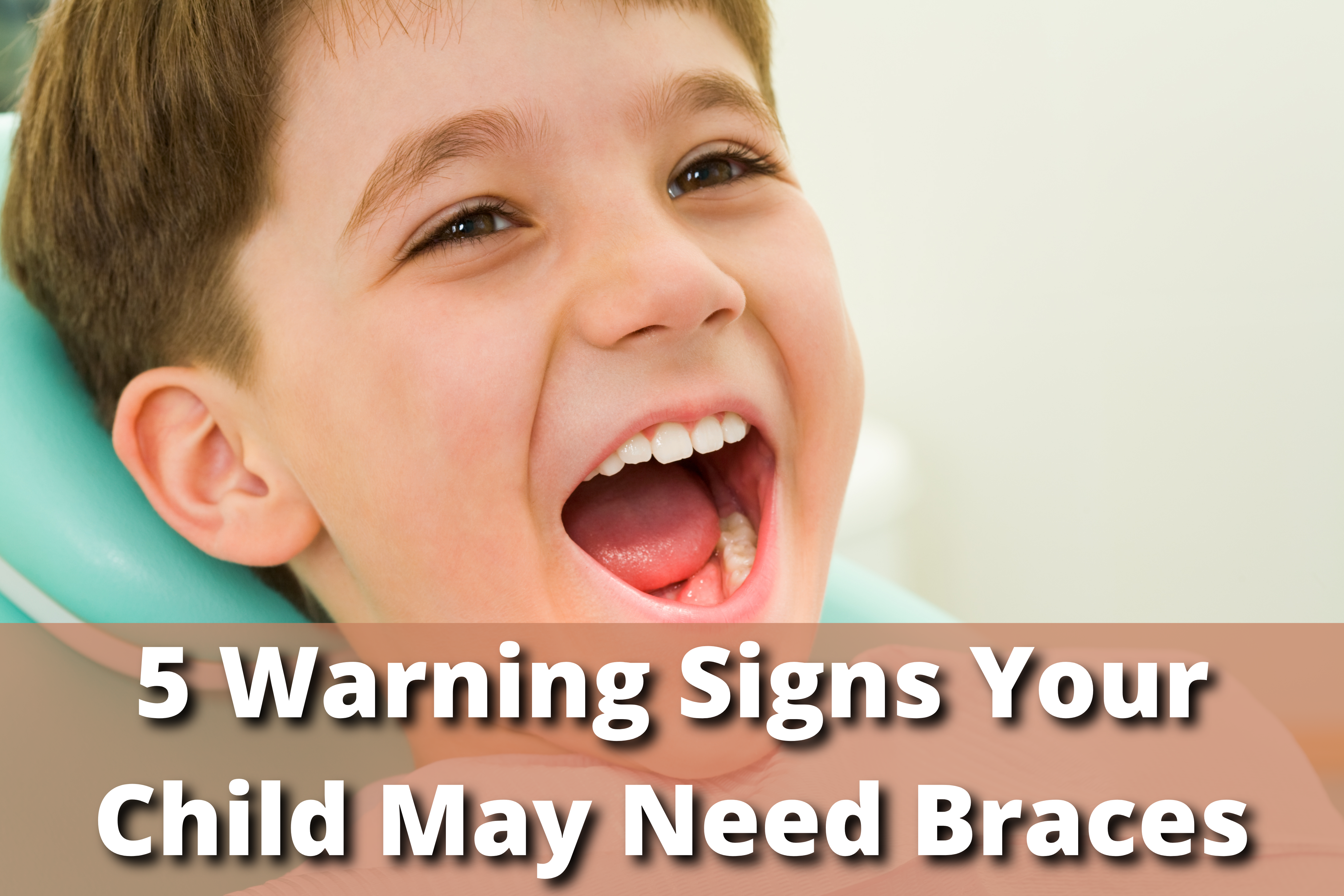5 Warning Signs Your Child May Need Braces
Posted on January 17, 2022
It’s a general rule of thumb that your child should have their first dentist appointment by the time they turn one. Did you know they should visit the orthodontist by the time they turn seven? By visiting the orthodontist at age seven, it is easier to detect what dental and orthodontic treatments will be needed for the child as they mature, and which ones can be prevented early.
That said, you might not always be able to avoid the need for orthodontic treatments. According to the American Association of Orthodontics, an estimated 3.9 million children are orthodontic patients in the United States.
Consult an orthodontist who specializes in children’s orthodontic care if you recognize any of the following symptoms in your child and want to find out if your child needs braces.
Early or Late Tooth Loss in Infants
Braces may be necessary if your child loses their baby teeth quickly or too slowly. Premature loss of baby teeth can prompt the adult teeth to shift into open spaces. As a result, tooth alignment problems can arise. Keep an eye on your child’s progress and make sure to schedule regular dental appointments so these problems can be detected sooner rather than later.
Jaw Position Misalignment
Overbites, underbites, and crossbites can be caused by improper alignment. A misaligned set of teeth can make it difficult for your child to eat or talk properly. It can also lead to regular cheek or tongue chewing. While jaw issues might not be an obvious cause for braces, they can often be corrected with early orthodontic treatment.
Crowded Teeth
If your child’s teeth are overlapping or too close together, this is referred to as teeth crowding. A crowded mouth can lead to a variety of issues, including difficulty chewing or biting, lisps, mouth breathing, and a misalignment of teeth. Your child may brush and floss incorrectly, resulting in an overabundance of plaque in their mouth and an elevated chance of dental decay. Braces can straighten the teeth and place them in the correct position, helping to solve these issues.
Prolonged Thumb-Sucking
Another indicator of the need for braces is a history of thumb-sucking. If you notice your child’s teeth are protruding or crowding, it may be because they’re engaging in thumb-sucking.
Thumb-sucking can be curbed naturally, but some children continue this habit to relieve anxiety or to comfort themselves. If this habit continues by the time their teeth start to come in, it can alter the position of the teeth and result in the need for braces.
Mouth Breathing
If your child breathes only through the mouth, this could indicate a misalignment of their jaw, teeth, and tongue. Due to the inability of your child’s tongue to rest on the ceiling of their mouth, they may establish a more elongated and narrower jawline. As a result, there is a greater demand for orthodontic treatment.
If you spot any of these five warning signs, it may indicate that braces will be in your child’s future. However, other orthodontic treatments may be more appropriate in some cases. Regardless, you’ll want to schedule an appointment with an orthodontist to monitor and assess these issues right away. For more information on how we can help, please contact our office today.



